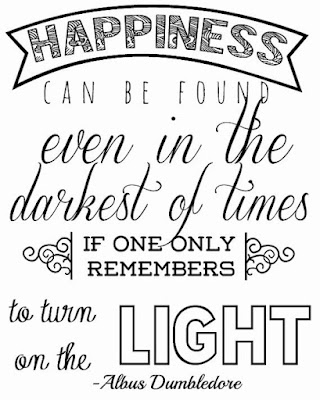 We all have down days, bad weeks; for some, even a succession of unfortunate events which can contribute to an awful month. "That's life," the eternal optimist might say, "pick yourself and move on." But it's not always that easy is it?
We all have down days, bad weeks; for some, even a succession of unfortunate events which can contribute to an awful month. "That's life," the eternal optimist might say, "pick yourself and move on." But it's not always that easy is it?Who knows what is around the corner, what life will throw at you tomorrow and how it will make you feel. You could wake up feeling on top of the world but go to bed wondering where it all went wrong. You may have reached this point in this post thinking 'This isn't very uplifting is it?!' but the purpose of this piece is to highlight the need to keep a sense of reality of what each day can bring and how to maintain a positive mindset to combat even the most challenging of times.
It is not about travelling around in a bubble of noncommittal but about how to face issues head-on in real-terms which in the long-term can be much more proactive and effective. It helps us to deal with situations that we may not want to face and builds life skills on how we can tackle these with minimal impact to ourselves.
This post is not about how to find the solution for any problems which may arise in your life, but how to implement a few simple tips to use as building blocks to start you on your journey - look them as four pillars to boost your morale and lift your mood to higher place;
1. Be Realistic
Keep the situation in real-time. Be aware of your own thoughts and stay calm to ensure that you make the best decision which is not based on emotion but on clear thinking and clarity. Accept that some things happen which are out of our control and that life doesn't always present situations which are how we want them to be.
2. Don't Shift the Blame
People who can't accept difficult circumstances and find it hard to make concise, sensible decisions, have a nasty habit of blaming other people for their problems. By failing to take responsibility for your actions you cannot possibly begin to make a true judgement of how to deal with an unwelcome situation.
3. Don't Over Think
When you pull an issue apart into a thousand pieces it can seem almost impossible to find a solution. You can begin to judge everything and everyone and it becomes a thankless task trying to sift through the multitude of surfacing negative thoughts in the hope of trying to find a chink of positivity which can assist with a usually easy remedy.
4. Don't Make Comparisons
We all do it - comparing ourselves with others seems to be second nature; especially with the rise in popularity of social media and networking. But in the long-run, it really won't do you any favours and can build frustration and in some cases resentment. There will always be someone prettier, smarter, younger and more successful than you but they will never be you - create your own story and your own success in life.





